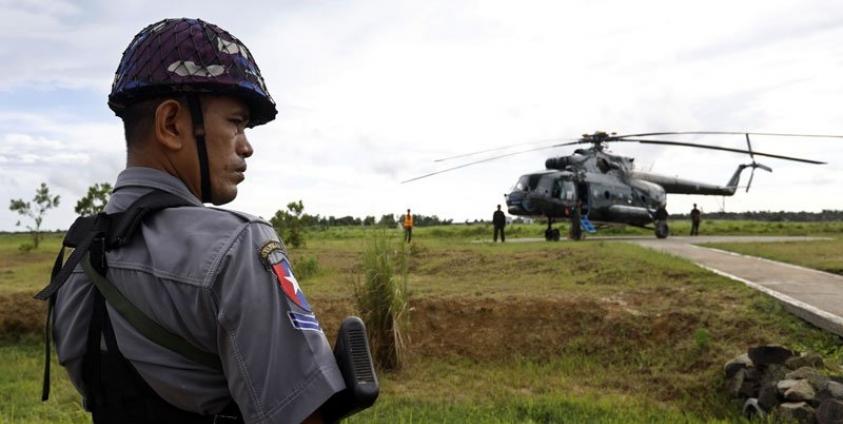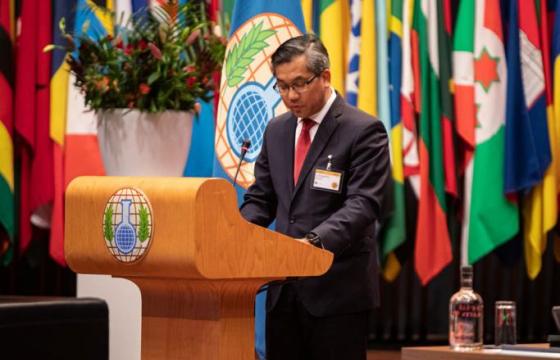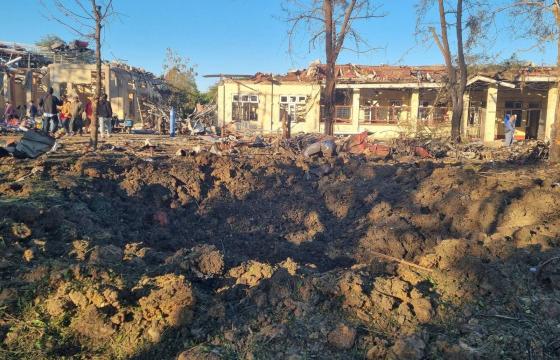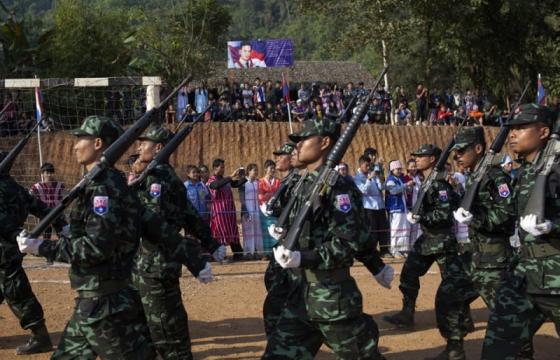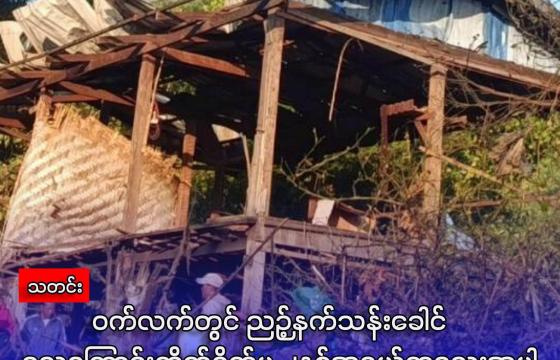It is commonly reported that the ‘international community’ is outraged by the ongoing crisis in Myanmar’s Rakhine state. Indeed, Myanmar’s handling of the situation since its escalation in August 2017 has made headlines in various Western news outlets. But whilst the EU and various Western states were quick to condemn the crisis in Rakhine, China and India have refrained from doing so. To understand the reasons behind this, one needs to look at the geostrategic importance Rakhine represents for the two competing regional powers as well as the natural resources harbored in the region.
Covering 36,762 km² of Myanmar’s Western coast, Rakhine state is rich in natural resources. In 2004, South Korean company Daewoo discovered 4.5 trillion cubic feet of gas reserves off the state’s coast. This has sparked the interest of China, eager to diversify its oil sources and extend its influence in the region.
Starting from 2008, China’s state oil company, the China National Petroleum Cooperation (CNPC), was permitted by the Myanmar military government at the time to buy gas from the Shwe reserve, in Rakhine’s offshore basin. China’s project to extract gas from Rakhine directly into its territory was realized in 2013 when gas was transported from Kyaukphyu to China’s Yunnan Province through the Myanmar-China Gas Pipeline. The pipeline, whose construction began in 2010, is said to deliver up to 12 billion m³ of gas per year.
Oil is another of Rakhine’s coveted natural resource. With the agreement of Myanmar’s military in 2008, China worked on the construction of a crude oil pipeline, parallel to its gas pipeline. After a two-year delay, the China-Myanmar pipeline began transporting oil from Rakhine’s Made Island port towards Yunnan in April 2017, four months before the escalation of the crisis in Rakhine.
China is motivated to establish a presence in Rakhine for its natural resources but most importantly, because the region is one of the focal points of China’s ambitious One Belt One Road (OBOR) Initiative. Such initiative aims to develop new routes and trading networks from China to the European, African and Asian continent. The building of pipelines in Rakhine state also serves this geopolitical strategy by offering China an alternative transport route to the Malacca Strait. Although this Strait is the shortest route for China to reach Africa and the Middle East, it is also a prime target for piracy. China also fears the possibility of a naval blockade of the Malacca Strait in the event of a conflict. Such a development would be catastrophic for China, as 80% of its oil imports from the Middle East are transported through the strait. With a pipeline crossing Rakhine, oil from Abu Dhabi, Iraq, Iran and Saudi Arabia would reach China faster and more safely.
In addition to the estimated US$2.5 billion invested in the China-Myanmar oil and gas pipeline projects, China plans on investing US$10 billion into the Kyaukphyu Special Economic Zone (SEZ). Starting from December 2015, the project is led by China’s CITIC Group. It will include a deep-sea port and an industrial park around the city of Kyaukphyu in Rakhine. It aims to turn the area, which extends over 17 km², into a maritime economic hub.
China’s aggressive infrastructure project expansion has not gone unnoticed by another player in the region: Myanmar’s other big neighbour, India, also wishes to assert its presence in Rakhine.
The country has its long-term project to counter China’s OBOR: its ‘Act East’ policy. Originally the ‘Look East’ policy and upgraded to the ‘Act East’ policy under Prime Minister Modi’s government, such policy aims to prioritise India’s relations with its Eastern neighbours to establish India as a regional power. Just as with China’s One Belt One Road Initiative, Rakhine’s natural resources and geostrategic location are key for India to develop its Eastern strategy.
India’s interest in Rakhine is not recent. In 2004, Indian state-owned companies GAIL and ONGC Videsh (a subsidiary of India’s Oil and Natural Gas company), were partners with Daewoo in the project to further explore Rakhine’s coast for gas reserves. After Daewoo had found the Shwe gas reserve, a consortium of Asian companies including GAIL and ONGC turned the area into a natural gas development project. The project includes the construction of the Myanmar-China Gas Pipeline connecting Rakhine to Yunnan. Therefore, despite its name, Indian state-owned companies have also invested in the Myanmar-China Gas pipeline.
Talks on the creation of a gas pipeline linking India, Myanmar and Bangladesh have also been revived.The signing of a tripartite pipeline project had previously been delayed due to disagreements between Bangladesh and India. This had led Myanmar to sign a MoU with Petro China in 2005 involving the sale of the A-1 Shwe gas block and to agree to a China-Myanmar pipeline instead. India is thus concerned not to lose another deal to China in this gas race.
The Kaladan-Multi-Modal Transport Project is India’s strongest potential to counterbalance China’s influence in the region. Signed in 2008, the project aims to connect the ports of Sittwe and Kolkata, representing 539km of shipping routes via the Bay of Bengal. The next development steps include connecting Sittwe to Paletwa in Chin state, further continuing the land route in Mizoram state in India.
Furthermore, India announced in July 2016 the creation of a 1000 acre Special Economic Zone in Sittwe, rivalling China’s Kyaukpyu Special Economic Zone south of the city.
Rakhine’s geostrategic location in the India Ocean and its billion-dollar infrastructure projects explain China and India’s desire for stability in the region while siding with Nay Pyi Taw rather than joining the West’s condemnation of the crisis.
Unrealistic expectations would include China pushing aside decade long-planned projects with the Myanmar government, renouncing its resources provision and one of the OBOR’s strategic points to side with the UN instead.Such scenario is all the more unlikely as India, whose growing ambitions see Rakhine as an essential piece of the puzzle in its Act East policy, becomes a new competitor in the Bay of Bengal. Myanmar thus knows it can count on China’s power of veto at the UN Security Council.
In this context, the West faces the difficulty to respond to the tensions in Rakhine all while avoiding a return of Myanmar’s pre-democracy era, which the unfolding of the crisis can already be drawn parallels with in light of recent calls for sanctions from rights groups and the renewal of Myanmar’s old alliances.
Annabelle Heugas is the Research Coordinator at the Myanmar Institute of Strategic and International Studies (MISIS).
By Annabelle Heugas, the Research Coordinator at the Myanmar Institute of Strategic and International Studies (MISIS).

